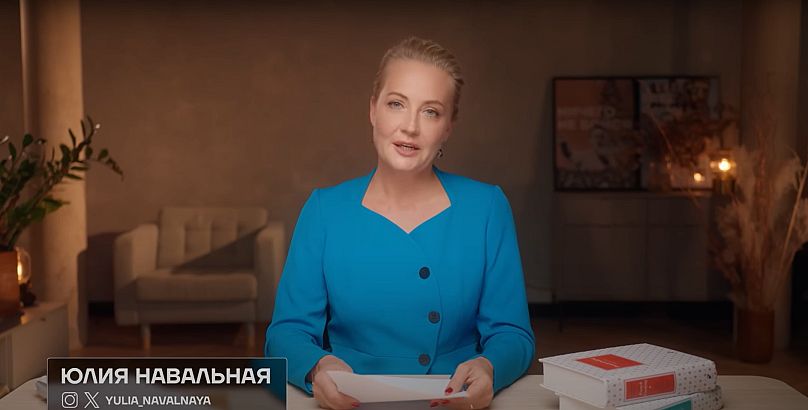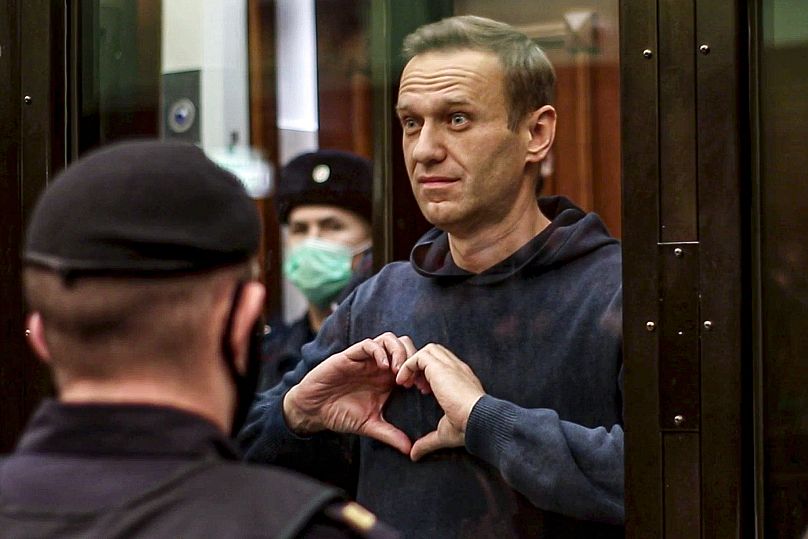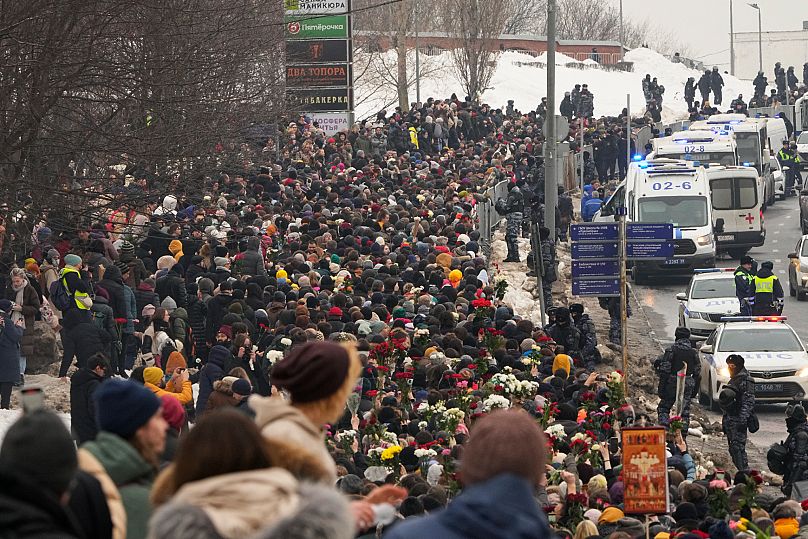Yulia Navalnaya has repeatedly accused the Russian state of murdering him, allegations the Kremlin has dismissed as nonsense.
Two tests carried out independently of each other in foreign labs have reportedly shown that the late Russian politician and activist Alexei Navalny was poisoned in prison, his widow Yulia Navalnaya said on Wednesday.
Navalny died suddenly in a Russian jail in the Arctic Circle on 16 February 2024 at the age of 47.
His widow has repeatedly accused the Russian state of organising and executing his murder, allegations the Kremlin has dismissed as unfounded.
In a video posted on the social media site X, Navalnaya said biological material from her husband had been smuggled to two unnamed countries abroad in 2024, where laboratories examined the material.
"These labs in two different countries reached the same conclusion: Alexei was killed. More specifically, he was poisoned," she claimed in the video.
She demanded the laboratories concerned publicly release the results about what she referred to as the "inconvenient truth" but not specify what type of poison the laboratories had detected.
"These results are of public importance and must be published. We all deserve to know the truth," Navalnaya said.
When asked about the claims in Navalnaya's video, the Kremlin spokesperson Dmitry Peskov said, "I don't know anything about these statements of hers and I can't say anything."
She also read from the last letter she had received from Navalny, in which he claimed there had been little response from authorities when he first said he felt unwell.
Navalnaya has always insisted that her husband, the most prominent opposition figure and anti-corruption campaigner in Russia, was murdered by the state, allegations the Kremlin has repeatedly dismissed as nonsense.
Russian President Vladimir Putin previously said that before Navalny died, plans had been put in place to swap him in a prisoner exchange with the West.
Anti-corruption videos
Navalny's vision of a "beautiful Russia of the future," where leaders are freely and fairly elected, corruption is reigned in and democratic institutions work, earned him widespread support across his country.
He drew young, energetic activists to his side, a team that resembled "a fancy startup" rather than a clandestine revolutionary operation, according to his posthumous memoir, Patriot, released eight months after his death.
The team produced investigative documentary videos exposing corruption by government officials.
But as Navalny aspired to public office, authorities responded by bringing a string of criminal charges against him, his allies and even relatives.
Regularly jailed, he was physically attacked by Kremlin supporters, one of whom threw green dye in his face that nearly cost him the vision in one eye.
He finished second in the race for Moscow mayor in 2013 amid allegations of vote rigging.
In 2017, he announced plans to run for president and set up a sprawling network of regional offices across the country, recruiting local activists. He was eventually barred from running.
In 2020, Navalny was poisoned with a nerve agent attack he blamed on the Kremlin, which always denied involvement.
His family and allies fought to have him flown to Germany for treatment and recovery.
Five months later, he won global plaudits by returning to Russia, where he was immediately arrested and imprisoned for the last three years of his life.
Authorities blamed Navalny's death on natural causes: a sudden spike in blood pressure and chronic diseases.
Tens of thousands of people attended his funeral in Moscow on 1 March 2024 in a rare display of support in the country where authorities have cracked down on public dissent, especially after Russia's full-scale invasion in early 2022.














